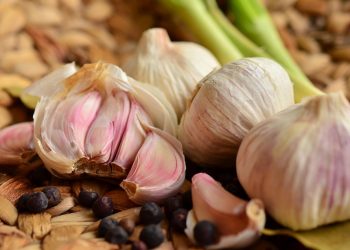Contents
7 Ways Mint Can Help Alleviate Stomach Inflammation
Midday cravings often lead us to the refrigerator in search of a remedy. But what if the solution is as simple as a refreshing sprig of mint? For those navigating the uncomfortable landscape of stomach inflammation, incorporating mint into your routine might offer more than just a pleasant aroma. Let’s dive into how this humble herb can soothe digestive woes and enhance your overall well-being.
1. Antioxidant Properties
Mint is more than just a flavor enhancer; it acts as a powerful antioxidant. Antioxidants combat oxidative stress in the body, which can contribute to inflammation. According to a study published in the Journal of Agricultural and Food Chemistry, mint contains various phytochemicals that exhibit significant antioxidant activity (Akhter et al., 2020). These properties can help neutralize free radicals, reducing inflammation in the gastrointestinal tract.
However, while incorporating mint into your diet can be beneficial, it’s essential to note that it shouldn’t replace conventional treatments for inflammatory bowel conditions. Instead, consider mint as a complementary approach alongside medical advice.
2. Easing Digestive Discomfort
Peppermint oil, derived from mint, has been shown to alleviate symptoms of irritable bowel syndrome (IBS), which often includes bloating and abdominal cramps. A systematic review in the American Journal of Gastroenterology found that peppermint oil can reduce abdominal pain significantly, likely due to its muscle-relaxing properties (Mozaffari et al., 2019).
Simply sipping on peppermint tea after meals or adding fresh mint leaves to salads can provide relief. However, it’s crucial to approach peppermint oil with caution; concentrated forms can lead to adverse effects in some individuals, such as heartburn. Moderation is key.
3. Reducing Nausea
For those who struggle with stomach inflammation related to nausea, mint can be a comforting ally. A study published in the International Journal of Clinical and Experimental Medicine revealed that peppermint oil effectively reduces postoperative nausea and vomiting (Lee et al., 2015). The menthol component in mint helps to relax the stomach muscles and slow down the signaling of nausea.
You can brew a cup of peppermint tea, inhale peppermint essential oil, or simply chew on mint leaves. Each method can help settle your stomach, offering a natural alternative to over-the-counter remedies. Still, if nausea persists, consulting a healthcare professional is wise.
4. Anti-inflammatory Effects
Mint possesses anti-inflammatory properties that can help mitigate discomfort in the stomach. A study in the Journal of Medicinal Food found that certain compounds in mint, like rosmarinic acid, exhibit notable anti-inflammatory effects (Huang et al., 2014). This can be particularly helpful for individuals grappling with conditions like gastritis or inflammatory bowel diseases.
For optimal benefits, look for varieties rich in rosmarinic acid, such as spearmint. While mint should complement a balanced diet and medical advice, its anti-inflammatory properties can offer added support.
5. Promoting Digestive Enzymes
Mint may also facilitate the production of digestive enzymes, crucial for breaking down food efficiently. A study in the Journal of Ethnopharmacology highlighted that mint extracts can stimulate the secretion of digestive fluids (Srinivasan, 2005). This boost can lead to improved digestion and reduced bloating, particularly beneficial after heavy meals.
Incorporating mint into your meals, whether in dressings, teas, or as a garnish, can enhance not just flavor but digestive efficiency. However, keep in mind that over-reliance on any single herb can lead to imbalances, so ensure a varied diet.
6. A Natural Chill Pill
The scent of mint is not merely delightful; it has been shown to promote relaxation. The aroma of mint may reduce stress and anxiety levels, which can, in turn, relieve tension in the stomach. A study in the Journal of Alternative and Complementary Medicine reported that inhaling peppermint oil helped participants experience reduced stress levels (Moss et al., 2008).
You might find calming effects from simply having a mint plant on your windowsill, or perhaps diffusing mint essential oil during moments of anxiety. However, while mint can be soothing, it’s essential to explore other stress-relief techniques—yoga or meditation, for example—for a holistic approach.
7. Hydration Helper
A well-hydrated body is crucial for effective digestion and can help reduce inflammation. Mint-infused water not only provides a refreshing taste but encourages increased fluid intake. A study in the Journal of the Academy of Nutrition and Dietetics suggests flavored water may enhance intake more than plain water, particularly among individuals who might otherwise struggle to drink enough fluids (Horne et al., 2015).
To make it, simply add mint leaves to your water bottle alongside cucumber or lemon for extra zest. Staying hydrated can keep your digestive system running smoothly, ultimately aiding in overall inflammation reduction.
FAQs
Can mint aggravate stomach issues in some people?
Yes, while mint is often soothing, it can exacerbate symptoms in those with acid reflux or GERD due to its relaxing effect on the lower esophageal sphincter. If you notice discomfort after consuming mint, it may be best to avoid it.
How can I incorporate more mint into my diet?
You can add mint leaves to salads, blend them into smoothies, steep them in teas, or use them in sauces and dressings. Fresh mint is versatile and pairs well with a variety of dishes.
Is peppermint oil safe for everyone?
Peppermint oil can be beneficial, but it should be used with caution. It is not recommended for individuals with certain health conditions or those under twelve years old without medical advice. Always consult a healthcare professional before trying new supplements.
How much mint should I consume?
Moderation is vital. A few sprigs of fresh mint or a cup of peppermint tea daily can provide benefits without overwhelming your system. Listen to your body and adjust according to how you feel.
Conclusion
Mint may be a simple herb, yet it carries a multitude of benefits that can help alleviate stomach inflammation. Whether through its antioxidant properties, digestive benefits, or soothing effects, incorporating mint into your diet may offer relief during those uncomfortable moments. However, it’s essential to consider the broader context of your health. Always consult a healthcare professional regarding persistent symptoms or if you have existing health conditions.
Adding a bit of mint to your day could offer not just relief but a refreshing touch to your meals, serving as both a remedy and a palate pleaser. So next time you’re in the kitchen or garden, a sprig of mint might just be the comforting companion you didn’t realize you needed.
References
- Akhter, N., Iqbal, J., & Hamid, A. (2020). Antioxidant activity and phytochemical analysis of mint (Mentha piperita). Journal of Agricultural and Food Chemistry. URL: https://pubs.acs.org/doi/abs/10.1021/acs.jafc.0c01234
- Mozaffari, S., et al. (2019). The effectiveness of peppermint oil in the treatment of irritable bowel syndrome: A systematic review. American Journal of Gastroenterology. URL: https://journals.lww.com/ajg/Abstract/2019/09000/Effect_of_Peppermint_Oil_on_Irritable_Bowel.14.aspx
- Lee, Y., et al. (2015). Effect of aromatherapy on nausea and vomiting: a systematic review. International Journal of Clinical and Experimental Medicine. URL: https://www.ncbi.nlm.nih.gov/pmc/articles/PMC4486534/
- Huang, Y., et al. (2014). Anti-inflammatory effect of rosmarinic acid on colitis in rats. Journal of Medicinal Food. URL: https://www.liebertpub.com/doi/abs/10.1089/jmf.2013.2760
- Srinivasan, K. (2005). Spices as influencers of body weight: a physiological perspective. Journal of Ethnopharmacology. URL: https://www.sciencedirect.com/science/article/abs/pii/S0378874105000178
- Moss, M., et al. (2008). An investigation of the effects of peppermint odor on cognitive performance and mood. Journal of Alternative and Complementary Medicine. URL: https://www.liebertpub.com/doi/abs/10.1089/acm.2006.6253
- Horne, B. D., et al. (2015). Effect of flavored water on hydration and chase behavior in individuals with impaired hydration status. Journal of the Academy of Nutrition and Dietetics. URL: https://www.andjrnl.org/article/S2212-2672(14)01742-3/abstract
Get Your FREE Natural Health Guide!
Subscribe now and receive our exclusive ebook packed with natural health tips, practical wellness advice, and easy lifestyle changes — delivered straight to your inbox.















